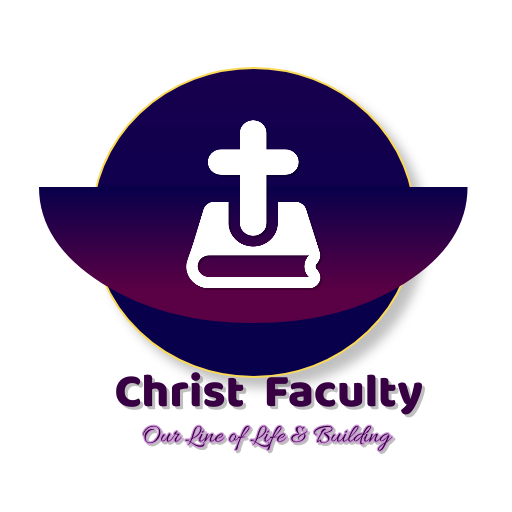Course Title: Systematic Theology I
Course Description:
Systematic Theology I is an introductory course designed to explore the foundational doctrines of Christian theology in a structured and comprehensive manner. This course provides a detailed examination of key theological topics, such as the doctrine of God (Theology Proper), revelation, the nature and authority of Scripture, the Trinity, creation, providence, and the nature of humanity (anthropology). Students will engage with historical and contemporary theological perspectives, critically analyzing and articulating their understanding of essential Christian beliefs. This course serves as the first part of a broader study in systematic theology, preparing students for deeper theological exploration and application.
Course Overview:
- Duration: Typically one semester (12-16 weeks)
- Format: Lectures, readings, discussions, written assignments, and exams
- Prerequisites: None, though a basic understanding of Christian faith and Bible literacy is recommended
- Target Audience: Theology students, church leaders, and anyone interested in deepening their understanding of Christian doctrines
Course Objectives:
By the end of this course, students will be able to:
- Understand the Nature and Task of Systematic Theology.
- Explore the Doctrine of Revelation.
- Examine the Doctrine of God (Theology Proper).
- Study the Doctrine of the Trinity.
- Explore the Doctrine of Creation.
- Understand the Doctrine of Humanity (Anthropology).
- Develop Critical and Analytical Skills.
- Apply Theological Knowledge to Contemporary Issues.
Course Outline:
Week 1: Introduction to Systematic Theology
- Definition and scope of systematic theology
- The relationship between systematic, biblical, and historical theology
- The importance and purpose of studying theology
- Methodologies in systematic theology
Week 2: Sources of Theology
- The role of Scripture as the primary source of theology
- Tradition, reason, and experience in theological formulation
- The role of the creeds and confessions
Week 3: Doctrine of Revelation
- General revelation: nature and conscience
- Special revelation: Scripture and Christ
- Theories of inspiration and inerrancy of Scripture
- The authority, clarity, necessity, and sufficiency of Scripture
Week 4: The Nature of God
- The attributes of God: communicable and incommunicable
- Classical theism: understanding God’s omnipotence, omniscience, and omnipresence
- The problem of evil and theodicy
Week 5: The Doctrine of the Trinity (Part 1)
- Biblical foundations of the Trinity
- Historical development: Councils of Nicaea and Constantinople
- Key heresies: Arianism, Modalism, and Tritheism
Week 6: The Doctrine of the Trinity (Part 2)
- The economic and immanent Trinity
- The relational aspects of the Trinity
- Practical implications of the Trinity in Christian life and worship
Week 7: Creation and Providence
- Biblical account of creation: Genesis 1-2
- Theological significance of creation ex nihilo
- Different views on creation: young-earth, old-earth, theistic evolution
- Understanding God’s providence: sustenance, concurrence, and governance
Week 8: Humanity in the Image of God (Imago Dei)
- Theological implications of being made in God’s image
- The purpose and role of humanity in creation
- The dignity, value, and worth of human beings
Week 9: The Doctrine of Sin (Hamartiology)
- The origin and nature of sin: the Fall of Adam and Eve
- The effects of sin on humanity and creation
- Original sin and inherited guilt
- Various views on human depravity: total depravity, partial depravity
Week 10: Human Nature and Free Will
- The nature of the human soul: dichotomy vs. trichotomy
- The will: determinism, compatibilism, and libertarianism
- The relationship between human freedom and divine sovereignty
Week 11: The Sovereignty of God and Human Responsibility
- Balancing divine sovereignty and human responsibility
- Predestination, election, and foreknowledge
- The problem of divine foreknowledge and human freedom
Week 12: Contemporary Issues in Theology
- Applying systematic theology to contemporary ethical and cultural issues
- The relevance of foundational doctrines for modern Christian living
- Case studies: exploring real-world applications of theological concepts
Week 13: Review and Integration
- Review of key concepts and doctrines covered
- Integration of theological concepts into a coherent systematic framework
- Discussion of unanswered questions and areas for further study
Week 14: Final Exam and Course Wrap-Up
- Final exam covering all major topics
- Reflection on learning and personal theological development
- Preparation for Systematic Theology II
Assessment Methods:
- Reading Assignments: Engaging with key theological texts and articles.
- Lectures & Discussions: Participating in class lectures and group discussions to deepen understanding.
- Written Assignments: Essays and reflection papers that demonstrate critical engagement with course material.
- Examinations: Midterm and final exams assessing comprehension of key doctrines and theological concepts.
Recommended Texts:
- “Systematic Theology” by Wayne Grudem
- “Christian Theology” by Millard J. Erickson
- “Systematic Theology: An Introduction to Christian Belief” by John M. Frame
This course outline provides a detailed roadmap for navigating the foundational topics of systematic theology, ensuring that students gain a robust and coherent understanding of essential Christian doctrines.
Course Features
- Lecture 0
- Quiz 0
- Duration 16 weeks
- Skill level All levels
- Language English
- Students 196
- Certificate No
- Assessments Yes
Curriculum
- 1 Section
- 0 Lessons
- 16 Weeks
- Systematic Theology 10







